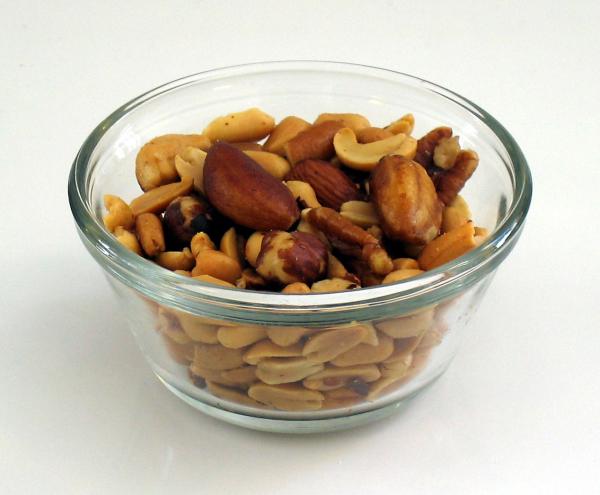Nuts have increasingly been viewed over the years as very beneficial, delivering a range of health benefits by the handful.
However, according to the findings of a new study, that reputation may be fairly misleading because a nut-eater has to be inclined towards a healthy lifestyle in order to enjoy their benefits.
An analysis by Swedish researchers encompassing more than 61,000 adults for up to 17 years showed that those who ate nuts had a lower risk of heart failure; heart attack; stroke; or suffering atrial fibrillation, or A-fib, which is a heartbeat that's rapid and irregular. And they also learned that those with these decreased risks were more likely to be physically active, younger, a non-smoker, a consumer of vegetables and fruits, and someone with a lower BMI count.
When researchers, however, controlled for these factors they discovered that all of the health benefits largely disappeared, with only a decreased risk of A-fib for all being the remaining health benefit from nut consumption.
 “Nuts are a good food, but they may not provide as much benefit as we once thought,” stated Susanna Larsson, Associate Professor of Epidemiology and Senior Researcher from Karolinska Institute in Sweden, and lead author, speaking to the New York Times. “It’s possible that previous studies didn’t control for as many factors as we did.”
“Nuts are a good food, but they may not provide as much benefit as we once thought,” stated Susanna Larsson, Associate Professor of Epidemiology and Senior Researcher from Karolinska Institute in Sweden, and lead author, speaking to the New York Times. “It’s possible that previous studies didn’t control for as many factors as we did.”
Therefore, when speaking about the entire population as a whole, the health benefits from nuts appear to be limited. Larsson and her colleagues wrote that "results from this large prospective study suggest that nut consumption or factors associated with this nutritional behaviour may play a role in reducing the risk of atrial fibrillation and possibly heart failure.
"Since only a small proportion of this population had moderate (about 5%) or high (<2%) nut consumption," they continued, "even a small increase in nut consumption may have large potential to lead to a reduction in incidence of atrial fibrillation and heart failure in this population."
The study, titled "Nut consumption and incidence of seven cardiovascular diseases," was recently published in the journal Heart.
These results are consistent with what we pointed out in November 2013, showing "a strong association between consumption of various types of nuts and a decreased risk of death," but, as compared to infrequent nut eaters, "those who consumed nuts more frequently had healthier lifestyles. They were leaner, less likely to smoke, more likely to exercise and use multivitamins. Also, they ate more fruits and vegetables and consumed more alcohol."
So while nuts can bestow health benefits, apparently those benefits aren't inherent to the nuts themselves. Rather, as our colleague and nutritional expert noted years ago, they're more strongly linked to a particular type of healthy person consuming nuts.
"It is highly unlikely," wrote Dr. Ruth Kava, "that a couch potato can reduce his or her risk of death by eating nuts while watching TV."




